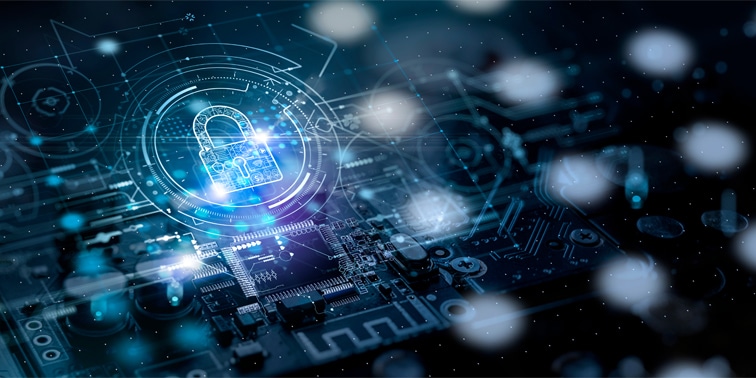In today’s digital age, cyber security awareness has never been more important. A recent article in Data Breach Today has highlighted just how crucial it is for customers to implement cybersecurity measures that protect business data from unauthorised access, manipulation, and theft.
With this rise in cyber-attacks, IT professionals are constantly seeking ways to protect sensitive business information and data. Multi-Factor Authentication (MFA) stands out as the crucial measure in this battle.
MFA has surprisingly been around since the late 1990’s and as more organisations learned to be security conscious, really caught on in the mid 2000’s. However, even though this additional method of authentication has been around a while in ‘technological years’ it’s lack of use is still surprisingly high, even though it’s a very simple way of introducing an additional layer of protection for your users.
The Global Small Business Multi-Factor Authentication (MFA) Study, conducted by the Cyber Readiness Institute, found that 54% of small to medium sized businesses (SMBs) do not implement MFA for their business and only 28% of SMBs actually require MFA to be implemented.
Verizon’s 2023 data breach Investigations Report found that 61% of ALL breaches involve credentials and 50% of these breaches were directly caused by stolen credentials.
MFA can stop accounts being compromised in the first place.
What is Multi-Factor Authentication?
MFA is an authentication method that grants access to a system only after providing two or more forms of authentication. These authentication factors can be classified into three main categories:
‘Known’ factors such as a password.
‘Physical’ factors like a key fob.
‘Who you are’ factors such as biometric identification.
By enforcing MFA, businesses add an additional layer of security to their login processes, making it significantly tougher for cybercriminals to impersonate users and gain unauthorised access to sensitive business data.
The Importance of Multi-Factor Authentication
A crucial reason to enforce MFA is to help prevent password hacking. Despite warnings to avoid weak passwords, many users still rely on simple passwords or reuse passwords across multiple sites.
Hackers capitalise on this by using password breaches and social engineering tactics to gain access to login credentials.
With MFA, even if hackers obtain a password, they would still need to provide another authentication factor to access the account.
Benefits of Multi-Factor Authentication
Mitigates Security Risks: By incorporating an additional layer of security into the login process, MFA serves as a valuable tool in mitigating various security risks. It aids in reducing susceptibility to password hacking, safeguarding against data breaches resulting from lost or stolen devices, and minimising the financial repercussions associated with data breaches.
Compliance and Trust: The implementation of MFA facilitates adherence to security regulations. It not only bolsters a company’s defence against potential threats but also fosters trust with customers by demonstrating a commitment to safeguarding sensitive data.
Key Areas to Enhance Cybersecurity Measures
Staff Awareness
Ensuring that all staff are aware of and trained in cybersecurity measures is vital. Regular employee training sessions on recognising phishing attempts, the importance of strong passwords, and the role of MFA can significantly enhance your firm’s overall security posture.
Ongoing Maintenance and System Monitoring
Maintaining an effective information security management system (ISMS) is vital. Secure configuration, along with monitoring, ongoing maintenance and incident response, is vital. Threat detection must be robust, especially when working with a cloud provider.
Incident Response
It’s essential to have a well-defined and effective incident response process in place. In the event of a breach, a swift and efficient response can mitigate damage and prevent further unauthorised access to your systems.
ISO 27001 Compliance
The 2023 version of the ISO 27001 standard encompasses all these security measures and more. It provides a framework to bring all aspects of cybersecurity into a working system, allowing you to identify gaps and address them proactively. Implementing an ISO 27001 framework helps organisations establish, implement, maintain, and continually improve an ISMS.
Enhance Your Cyber Security
The rise in cyber-attacks highlights the crucial need for robust cybersecurity measures. Multi-Factor Authentication is a key component in protecting sensitive business data from unauthorised access.
Stay ahead of potential threats and safeguard your business data by adopting these essential cybersecurity measures discussed in our article.
For more guidance on continual improvement of your information security management system and to explore how you can enhance your cybersecurity framework, get in touch with our experts at Inavate Consulting today.






